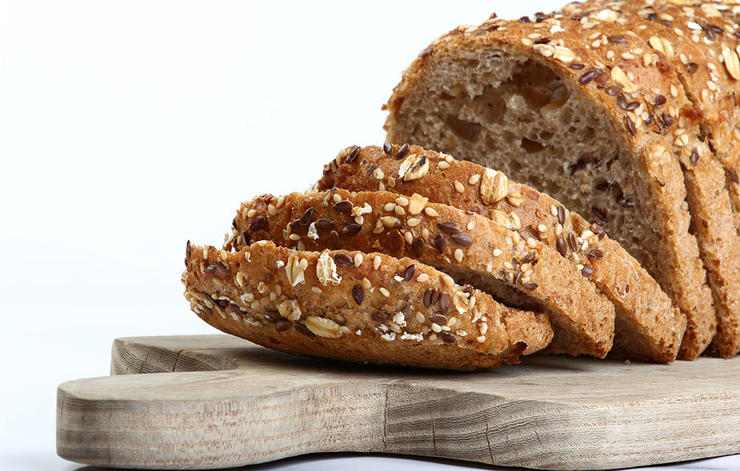In this article, we are going to state the rules by following which you can have a healthy and strong brain that is resistant to brain diseases, memory loss and cognitive disorders. Even if you are currently experiencing severe brain disease, you can use the following principles to improve your brain health.
In order to have a strong brain, your diet should be rich in nutrients that strengthen the brain, such as amino acids, which are found in proteins and healthy sugars. You should also include healthy fatty acids and a combination of vitamins and minerals in your diet. When you consume healthy and brain-boosting foods, your body breaks down these substances into their constituent compounds. These same substances act as the building blocks of a healthy brain.
Reduce consumption of red meat and high-fat dairy products:
As you know, red meat and high-fat dairy products contain saturated fatty acids that increase blood cholesterol levels and increase the production of beta-amyloid plaques in the brain. This increases the risk of brain diseases such as Alzheimer’s. Therefore, you should try to limit the meal containing meat or high-fat dairy products.
On days you avoid eating red meat, you can use 6 ounces of lean chicken or fish instead. Dedicate a few days of the week to eating healthy vegetables. Some people try to minimize eating red meat. If you are one of these people, then you are half way there.
Although eating small amounts of red meat can be beneficial, some people use these foods excessively, which increases the amount of omega-6 fatty acids in the body. Excess amounts of this fatty acid are not useful for the body at all and can cause inflammation.
Some foods that are rich in digestible and usable proteins include avocados, legumes such as lentils or beans, nuts, almond milk, soy milk, tofu, bean sprouts, and alfalfa sprouts. Also, when the bean sprout is consumed raw, thanks to the enzymes in it, it can introduce absorbable proteins into the body.
Avoid eating refined grains. Use whole grains instead of these ingredients

In this law, we recommend using gluten-free options such as quinoa, brown rice, wild rice, and tapioca. Your body can break down carbohydrates into natural sugars that your brain needs for energy. However, you should remember that your body needs a certain amount of sugar.
Refined or concentrated sugars found in soft drinks, ice cream, cakes, cookies, or other sugary foods introduce extra sugar into the body, which causes blood sugar levels to rise quickly. Instead, your brain needs It provides sustained energy from healthy carbohydrates such as fruits, whole grains, and legumes.
As you know, legumes are rich in proteins and carbohydrates, which makes them an excellent choice for brain health. Better sources include gluten-free whole grains and carbohydrates. These sources include brown rice, wild rice, almond flour, tapioca flour and quinoa.
Brown rice has more nutrients and is a better choice than white rice. This rice contains vitamin E and is high in fiber. Quinoa can also be a good choice for your brain health. It is a complete protein and is rich in iron, B vitamins and fiber.
If you suffer from depression or mental illness, it is better to use gluten-free products.
The study shows that gluten sensitivity and celiac disease can be related to schizophrenia and other mental illnesses. Scientists examined 471 people, among which 129 people had psychotic disorder, 191 people had mild schizophrenia and 151 people were healthy.
In this study, researchers measured the levels of different types of antibodies to determine whether people with schizophrenia and psychosis are allergic to gluten-containing substances. Less than 1% of people with mental illnesses showed signs of celiac disease. However, a significant number of people with schizophrenia and psychosis had high levels of antibodies.
People with mental illnesses usually have the same symptoms as people with celiac disease, but these people show a different immune system response. Also, people with mental illness responded differently to gluten compared to the group without any illness.
This study suggests that the immune system’s abnormal response to gluten may be involved in these forms of mental illness. Of course, more research is needed to prove this claim.
Eat healthy snacks and meals

Make sure you eat three meals a day with healthy snacks. This helps your body to maintain a stable blood sugar level. Blood sugar is one of the main fuels of the brain and is necessary to improve its performance. In order for the brain to use blood sugar properly, it must flow steadily and slowly in the blood.
This is exactly the opposite of what people observe in their meals. Most people ignore the main meals and use a lot of sugar and sweets. It is better to have three fixed meals a day along with a few snacks.
Eliminate trans, hydrogenated fatty acids and foods that contain these fatty acids.

Completely avoid eating foods containing trans and hydrogenated fatty acids. Studies show that diets containing trans fatty acids make the cell membrane of the brain permeable. This allows viruses to gain more access to the brain, disrupt brain signals, destroy brain cells and reduce cognitive function.
If all these reasons that we mentioned were not alarming enough for you, you should know that trans fatty acids are placed in the myelin sheath. As you know, the myelin sheath is a protective covering that takes care of nerves and brain cells.
This changes the electrical conductivity of nerves and brain cells and has a negative effect on body communication. Trans fatty acids also increase the risk of stroke.
Vegetables and fruits should account for at least 80% of your diet

Vegetables should play a colorful role in your diet. Of course, you should know that white potatoes are not included in this range. Try to use a variety of vegetables and fruits such as pumpkin, green leafy vegetables, bell peppers, cabbage, onions, sweet potatoes, apples, berries and blueberries.
Have at least 5 servings of vegetables a day. Each serving is equal to half a cup of any vegetable you like. Eat at least two servings of fruit a day. Each serving of fruit is equivalent to half a cup of fruit. Make sure you include three brain-boosting foods in your daily diet.
These ingredients include blueberries, grapes, pomegranates, tomatoes, walnuts and wild salmon. Although most of the brain health boosters are fresh fruits and vegetables, other foods are also on this list.
In addition, it is better to consume at least two other brain-friendly foods per day. These include apricots, peaches, plums, celery and celery seeds, cherries, coffee, ginger, red beans, sage, rosemary, and tea. Is.
Use coconut oil or extra virgin olive oil for cooking
This means avoiding other oils. Although coconut oil contains saturated fatty acids, research and studies show that these fatty acids behave differently in the body.
Use at least half a cup of legumes a day
You can use any kind of beans you like. Chickpeas, black beans, red beans, pinto beans, lentils and other legumes are good choices for your brain health.
Avoid artificial sweeteners such as saccharin, sucralose, aspartame
Use only natural sweeteners. Of course, you must remember to minimize the consumption of any type of sugar.
Reduce sugar consumption as much as possible
Reduce any type of sweets. Try to avoid cookies, cakes and biscuits as much as you can. If you like to eat sweets, use fruits. If you have depression or suffer from other mental illnesses, it is better to avoid the consumption of concentrated sugar altogether. Fruit is the best substitute for such ingredients.
Use unrefined sea salt instead of iodized salt
Instead of iodized salt, it is better to use unrefined sea salt in your diet. Iodized salt is salt to which iodine has been added. This is while unrefined sea salt naturally contains sodium along with other valuable minerals such as potassium, calcium and magnesium.
Although sea salt is not a good source of these minerals, unrefined sea salt is rich in minerals and the body will need them. Therefore, it is better to use these salts.
Do vigorous exercise at least five times a week for thirty minutes.
Walking, running, mountain climbing, biking, skating, or other vigorous activities can be helpful. Exercise is an essential part of your body’s health. Exercising helps the body deliver oxygen-rich blood to the brain. Depletion of oxygen for 6 minutes can cause permanent damage to the brain.
A decrease in oxygen for 7 minutes can kill a person. Since you bring oxygen into your body through breathing, shallow breathing or lack of exercise can reduce the amount of oxygen-rich blood. By doing regular exercise, you can bring more oxygen to the brain.
Take quality multivitamins and mineral supplements
These supplements must be free of artificial additives, colors and sweeteners. Take iron supplements only when prescribed by your doctor. Make sure your multivitamin contains at least 50 grams of B complex vitamins and 50 micrograms of folate and vitamin B12.
Studies show that there is a connection between vitamin B12 deficiency and the risk of Alzheimer’s, memory loss and depression. Research has also shown that consuming more B vitamins can simply reduce the rate of brain shrinkage associated with aging.
Do brain health tricks for 60 seconds
Use tricks that can improve your memory. These tricks only take a minute.




